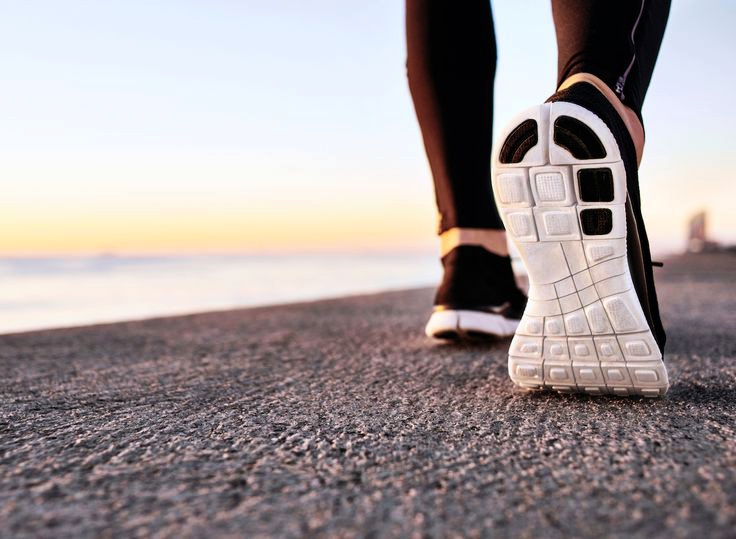Introduction:
After a long day at work, most people just want to relax and unwind. However, taking a short walk at night can be a great way for workers to refresh their mind, improve physical health, and reduce stress. Whether you work a day shift or a night shift, walking at night has numerous advantages. In this article, we will discuss the importance of night walks, their benefits, safety tips, and how to make them a part of your daily routine.

Why Should Workers Take a Short Walk at Night?
Many workers spend their entire day sitting in front of a computer, standing at a workstation, or doing physically demanding tasks.
No matter the type of job, the body and mind need relaxation and movement.
A night walk helps in:
Reducing stress and anxiety after a tiring workday.
Improving digestion after dinner.
Boosting mental clarity and refreshing the mind.
Enhancing sleep quality by calming the body.
For night shift workers, a short walk before or after work helps reset the body clock and fight fatigue.
Benefits of Taking a Short Walk at Night:
1. Helps in Stress Relief:
After a long workday, stress can build up, making it difficult to relax. Walking at night provides fresh air, quiet surroundings, and a chance to clear the mind, reducing anxiety and mental exhaustion.
2. Improves Sleep Quality:
A gentle night walk relaxes muscles, regulates breathing, and helps release stress hormones, making it easier to fall asleep. Those who struggle with insomnia or irregular sleep patterns can benefit greatly.
3. Boosts Digestion:
Walking after dinner aids digestion and prevents bloating or discomfort.
It also reduces the risk of acid reflux, making it ideal for those with digestive issues.
4. Enhances Mental:
Clarity and Focus For workers with mentally demanding jobs, a night walk can help refresh the brain, improve concentration, and clear mental fatigue.
5. Supports Heart Health:
A short walk at night keeps the heart active, improves blood circulation, and helps maintain normal blood pressure levels. Walking regularly reduces the risk of heart disease and stroke.
6.Aids in Weight Management:
Even a 15-30 minute walk can help burn calories and boost metabolism, making it a great habit for those trying to maintain or lose weight.
7. Provides Time for Self-Reflection:
Walking alone at night offers a peaceful and distraction environment, giving workers time to think, plan, or simply enjoy the quiet moments.
How to Make Night Walks a Daily Habit?
1. Set a Routine:
Fix a specific time for your night walk, whether right after dinner, before bedtime, or after work. Having a routine helps make it a habit.
2. Choose a Safe and Well-Lit Route:
Safety should always be a priority.
Choose a well-lit street, park, or a familiar area to walk in.
Avoid dark alleys or isolated places.
3. Wear Comfortable Clothes and Shoes:
Wear light, breathable clothing and comfortable walking shoes to avoid discomfort. If walking in cold weather, dress warmly.
4. Listen to Music or a Podcast :
Listening to relaxing music, audiobooks, or podcasts can make the walk more enjoyable and productive.
However, keep the volume low to stay aware of your surroundings.
5. Walk with a Friend or Pet:
If possible, walk with a friend, family member, or even a pet.
This makes the experience more enjoyable and also enhances safety.
6. Use a Fitness Tracker:
Using a smart watch or fitness app to track steps and progress can help you stay motivated and make night walking a long-term habit.
7. Stay Hydrated:
Drink a glass of water before and after your walk to keep your body hydrated.
Safety Tips for Night Walkers:
While night walks are refreshing, they also come with some risks. Here are important safety precautions to follow:
Walk in well-lit areas to avoid accidents or unwanted encounters.
Be aware of your surroundings and avoid distractions like looking at your phone while walking.
Carry a flashlight or wear reflective clothing if walking in dimly lit areas.
Inform someone about your walking route and estimated return time, especially if walking alone.
Avoid wearing headphones at high volume to stay alert to traffic and people around you.
Keep emergency contact numbers saved in your phone.
Do not engage with strangers in isolated areas.
Best Time to Walk at Night:
The ideal time for a night walk depends on your schedule:
After Dinner (7 PM – 9 PM) – Best for digestion and relaxation.
Late Night (10 PM – 12 AM) – Ideal for workers finishing late shifts, as it helps unwind before bed.
After Night Shift (4 AM – 6 AM) – Night shift workers can take a walk after their shift to reset their body clock and improve sleep quality.
How Long Should a Night Walk Be?
A short walk of 15-30 minutes is enough to enjoy the benefits.
However, if you have more time and energy, you can extend it up to 45 minutes or an hour.
Alternatives to Outdoor Night Walking:
If walking outside at night is not safe or possible, here are some alternatives:
Walk indoors – Walk around your house or in a hallway.
Use a treadmill – A great option for those who prefer indoor exercise.
Do light stretching – Helps in relaxation and improves flexibility.
Conclusion:
For workers, a short walk at night is one of the simplest and most effective ways to relieve stress, improve digestion, boost heart health, and sleep better.
Whether you have a desk job, a physically demanding job, or work night shifts, taking time for a short walk can greatly improve physical and mental well-being.
By making night walking a part of your daily routine and following safety precautions, you can enjoy all the benefits without any risks. So, put on your walking shoes and start experiencing the positive changes a night walk can bring!





